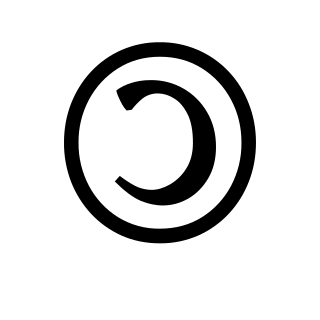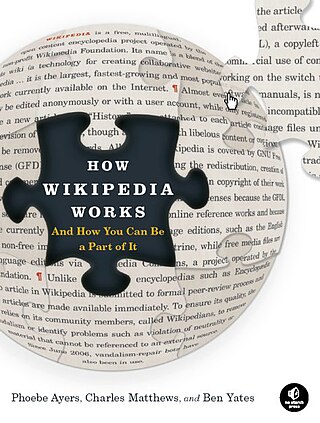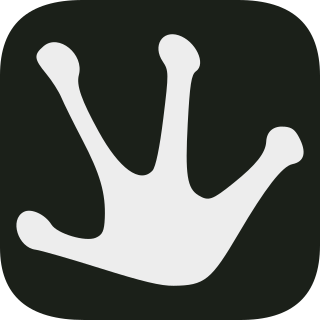Freeware is software, most often proprietary, that is distributed at no monetary cost to the end user. There is no agreed-upon set of rights, license, or EULA that defines freeware unambiguously; every publisher defines its own rules for the freeware it offers. For instance, modification, redistribution by third parties, and reverse engineering are permitted by some publishers but prohibited by others. Unlike with free and open-source software, which are also often distributed free of charge, the source code for freeware is typically not made available. Freeware may be intended to benefit its producer by, for example, encouraging sales of a more capable version, as in the freemium and shareware business models.
The Open Publication License (OPL) was published by the Open Content Project in 1999 as a public copyright license for documents. It superseded the Open Content License, which was published by the Open Content Project in 1998. Starting around 2002-2003, it began to be superseded, in turn, by the Creative Commons licenses.

The Persistence of Vision Ray Tracer, most commonly acronymed as POV-Ray, is a cross-platform ray-tracing program that generates images from a text-based scene description. It was originally based on DKBTrace, written by David Kirk Buck and Aaron A. Collins for Amiga computers. There are also influences from the earlier Polyray raytracer because of contributions from its author, Alexander Enzmann. POV-Ray is free and open-source software, with the source code available under the AGPL-3.0-or-later license.
The Open Content License is a share-alike public copyright license by Open Content Project in 1998. The license can be applied to a work to make it open content. It is one of the earliest non-software free content licenses.

Free as in Freedom: Richard Stallman's Crusade for Free Software (ISBN 0-596-00287-4) is a free book licensed under the GNU Free Documentation License about the life of Richard Stallman, written by Sam Williams and published by O'Reilly Media on March 1, 2002.
In general, the term credit in the artistic or intellectual sense refers to an acknowledgment of those who contributed to a work, whether through ideas or in a more direct sense.
A scraper site is a website that copies content from other websites using web scraping. The content is then mirrored with the goal of creating revenue, usually through advertising and sometimes by selling user data.

OpenWetWare is a wiki whose mission is "to support open research, education, publication, and discussion in biological sciences and engineering."
License compatibility is a legal framework that allows for pieces of software with different software licenses to be distributed together. The need for such a framework arises because the different licenses can contain contradictory requirements, rendering it impossible to legally combine source code from separately-licensed software in order to create and publish a new program. Proprietary licenses are generally program-specific and incompatible; authors must negotiate to combine code. Copyleft licenses are commonly deliberately incompatible with proprietary licenses, in order to prevent copyleft software from being re-licensed under a proprietary license, turning it into proprietary software. Many copyleft licenses explicitly allow relicensing under some other copyleft licenses. Permissive licenses are compatible with everything, including proprietary licenses; there is thus no guarantee that all derived works will remain under a permissive license.

The FLOSS Manuals (FM) is a non-profit foundation founded in 2006 by Adam Hyde and based in the Netherlands. The foundation is focused on the creation of quality documentation about how to use free software.

A free-software license is a notice that grants the recipient of a piece of software extensive rights to modify and redistribute that software. These actions are usually prohibited by copyright law, but the rights-holder of a piece of software can remove these restrictions by accompanying the software with a software license which grants the recipient these rights. Software using such a license is free software as conferred by the copyright holder. Free-software licenses are applied to software in source code and also binary object-code form, as the copyright law recognizes both forms.

Copyleft is the legal technique of granting certain freedoms over copies of copyrighted works with the requirement that the same rights be preserved in derivative works. In this sense, freedoms refers to the use of the work for any purpose, and the ability to modify, copy, share, and redistribute the work, with or without a fee. Licenses which implement copyleft can be used to maintain copyright conditions for works ranging from computer software, to documents, art, and scientific discoveries, and similar approaches have even been applied to certain patents.

The GNU General Public License is a series of widely used free software licenses, or copyleft, that guarantee end users the four freedoms to run, study, share, and modify the software. The license was the first copyleft for general use, and was originally written by Richard Stallman, the founder of the Free Software Foundation (FSF), for the GNU Project. The license grants the recipients of a computer program the rights of the Free Software Definition. The licenses in the GPL series are all copyleft licenses, which means that any derivative work must be distributed under the same or equivalent license terms. It is more restrictive than the Lesser General Public License, and even further distinct from the more widely-used permissive software licenses BSD, MIT, and Apache.

The GNU Free Documentation License is a copyleft license for free documentation, designed by the Free Software Foundation (FSF) for the GNU Project. It is similar to the GNU General Public License, giving readers the rights to copy, redistribute, and modify a work and requires all copies and derivatives to be available under the same license. Copies may also be sold commercially, but, if produced in larger quantities, the original document or source code must be made available to the work's recipient.
The Linux Documentation Project (LDP) is a dormant all-volunteer project that maintains a large collection of GNU and Linux-related documentation and publishes the collection online. It began as a way for hackers to share their documentation with each other and with their users, and for users to share documentation with each other. Its documents tend to be oriented towards experienced users such as professional system administrators, but it also contains tutorials for beginners.

How Wikipedia Works is a 2008 book by Phoebe Ayers, Charles Matthews, and Ben Yates. Published by No Starch Press, it is a how-to reference book for using and contributing to the Wikipedia encyclopedia, targeted at "students, professors, and everyday experts and fans". It offers specific sections for teachers, users, and researchers. It was designed as a reference work and has detailed bibliographies for each section.

Tryton is a three-tier high-level general purpose computer application platform on top of which is built an enterprise resource planning (ERP) business solution through a set of Tryton modules. The three-tier architecture consists of the Tryton client, the Tryton server and the database management system.
The Open Source Maturity Model (OMM) is a methodology for assessing Free/Libre Open Source Software (FLOSS) and more specifically the FLOSS development process. This methodology is released under the Creative Commons license.
Software relicensing is applied in open-source software development when software licenses of software modules are incompatible and are required to be compatible for a greater combined work. Licenses applied to software as copyrightable works, in source code as binary form, can contain contradictory clauses. These requirements can make it impossible to combine source code or content of several software works to create a new combined one.









